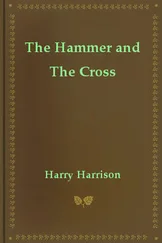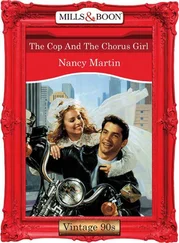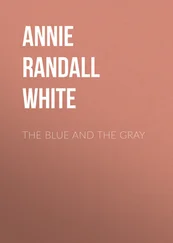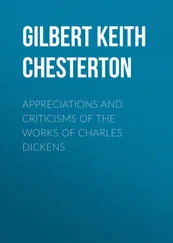Gilbert Chesterton - The Ball and the Cross
Здесь есть возможность читать онлайн «Gilbert Chesterton - The Ball and the Cross» весь текст электронной книги совершенно бесплатно (целиком полную версию без сокращений). В некоторых случаях можно слушать аудио, скачать через торрент в формате fb2 и присутствует краткое содержание. Жанр: Классическая проза, на английском языке. Описание произведения, (предисловие) а так же отзывы посетителей доступны на портале библиотеки ЛибКат.
- Название:The Ball and the Cross
- Автор:
- Жанр:
- Год:неизвестен
- ISBN:нет данных
- Рейтинг книги:5 / 5. Голосов: 1
-
Избранное:Добавить в избранное
- Отзывы:
-
Ваша оценка:
- 100
- 1
- 2
- 3
- 4
- 5
The Ball and the Cross: краткое содержание, описание и аннотация
Предлагаем к чтению аннотацию, описание, краткое содержание или предисловие (зависит от того, что написал сам автор книги «The Ball and the Cross»). Если вы не нашли необходимую информацию о книге — напишите в комментариях, мы постараемся отыскать её.
The Ball and the Cross — читать онлайн бесплатно полную книгу (весь текст) целиком
Ниже представлен текст книги, разбитый по страницам. Система сохранения места последней прочитанной страницы, позволяет с удобством читать онлайн бесплатно книгу «The Ball and the Cross», без необходимости каждый раз заново искать на чём Вы остановились. Поставьте закладку, и сможете в любой момент перейти на страницу, на которой закончили чтение.
Интервал:
Закладка:
He stood silent for a second or two and then resumed.
“A minute or two ago I caught you out in a real contradiction. At that moment logically I was right. And at that moment I knew I was wrong. Yes, there is a real difference between the natural and the supernatural: if you flew up into that blue sky this instant, I should think that you were moved by God–or the devil. But if you want to know what I really think...I must explain.”
He stopped again, abstractedly boring the point of his sword into the earth, and went on:
“I was born and bred and taught in a complete universe. The supernatural was not natural, but it was perfectly reasonable. Nay, the supernatural to me is more reasonable than the natural; for the supernatural is a direct message from God, who is reason. I was taught that some things are natural and some things divine. I mean that some things are mechanical and some things divine. But there is the great difficulty, Turnbull. The great difficulty is that, according to my teaching, you are divine.”
“Me! Divine?” said Turnbull truculently. “What do you mean?”
“That is just the difficulty,” continued MacIan thoughtfully. “I was told that there was a difference between the grass and a man’s will; and the difference was that a man’s will was special and divine. A man’s free will, I heard, was supernatural.”
“Rubbish!” said Turnbull.
“Oh,” said MacIan patiently, “then if a man’s free will isn’t supernatural, why do your materialists deny that it exists?”
Turnbull was silent for a moment. Then he began to speak, but MacIan continued with the same steady voice and sad eyes:
“So what I feel is this: Here is the great divine creation I was taught to believe in. I can understand your disbelieving in it, but why disbelieve in a part of it? It was all one thing to me. God had authority because he was God. Man had authority because he was man. You cannot prove that God is better than a man; nor can you prove that a man is better than a horse. Why permit any ordinary thing? Why do you let a horse be saddled?”
“Some modern thinkers disapprove of it,” said Turnbull a little doubtfully.
“I know,” said MacIan grimly; “that man who talked about love, for instance.”
Turnbull made a humorous grimace; then he said: “We seem to be talking in a kind of shorthand; but I won’t pretend not to understand you. What you mean is this: that you learnt about all your saints and angels at the same time as you learnt about common morality, from the same people, in the same way. And you mean to say that if one may be disputed, so may the other. Well, let that pass for the moment. But let me ask you a question in turn. Did not this system of yours, which you swallowed whole, contain all sorts of things that were merely local, the respect for the chief of your clan, or such things; the village ghost, the family feud, or what not? Did you not take in those things, too, along with your theology?”
MacIan stared along the dim village road, down which the last straggler from the inn was trailing his way.
“What you say is not unreasonable,” he said. “But it is not quite true. The distinction between the chief and us did exist; but it was never anything like the distinction between the human and the divine, or the human and the animal. It was more like the distinction between one animal and another. But–”
“Well?” said Turnbull.
MacIan was silent.
“Go on,” repeated Turnbull; “what’s the matter with you? What are you staring at?”
“I am staring,” said MacIan at last, “at that which shall judge us both.”
“Oh, yes,” said Turnbull in a tired way, “I suppose you mean God.”
“No, I don’t,” said MacIan, shaking his head. “I mean him.”
And he pointed to the half-tipsy yokel who was ploughing down the road.
“What do you mean?” asked the atheist.
“I mean him,” repeated MacIan with emphasis. “He goes out in the early dawn; he digs or he ploughs a field. Then he comes back and drinks ale, and then he sings a song. All your philosophies and political systems are young compared to him. All your hoary cathedrals, yes, even the Eternal Church on earth is new compared to him. The most mouldering gods in the British Museum are new facts beside him. It is he who in the end shall judge us all.”
And MacIan rose to his feet with a vague excitement.
“What are you going to do?”
“I am going to ask him,” cried MacIan, “which of us is right.”
Turnbull broke into a kind of laugh. “Ask that intoxicated turnip-eater–” he began.
“Yes–which of us is right,” cried MacIan violently. “Oh, you have long words and I have long words; and I talk of every man being the image of God; and you talk of every man being a citizen and enlightened enough to govern. But if every man typifies God, there is God. If every man is an enlightened citizen, there is your enlightened citizen. The first man one meets is always man. Let us catch him up.”
And in gigantic strides the long, lean Highlander whirled away into the grey twilight, Turnbull following with a good-humoured oath.
The track of the rustic was easy to follow, even in the faltering dark; for he was enlivening his wavering walk with song. It was an interminable poem, beginning with some unspecified King William, who (it appeared) lived in London town and who after the second rise vanished rather abruptly from the train of thought. The rest was almost entirely about beer and was thick with local topography of a quite unrecognizable kind. The singer’s step was neither very rapid, nor, indeed, exceptionally secure; so the song grew louder and louder and the two soon overtook him.
He was a man elderly or rather of any age, with lean grey hair and a lean red face, but with that remarkable rustic physiognomy in which it seems that all the features stand out independently from the face; the rugged red nose going out like a limb; the bleared blue eyes standing out like signals.
He gave them greeting with the elaborate urbanity of the slightly intoxicated. MacIan, who was vibrating with one of his silent, violent decisions, opened the question without delay. He explained the philosophic position in words as short and simple as possible. But the singular old man with the lank red face seemed to think uncommonly little of the short words. He fixed with a fierce affection upon one or two of the long ones.
“Atheists!” he repeated with luxurious scorn. “Atheists! I know their sort, master. Atheists! Don’t talk to me about ’un. Atheists!”
The grounds of his disdain seemed a little dark and confused; but they were evidently sufficient. MacIan resumed in some encouragement:
“You think as I do, I hope; you think that a man should be connected with the Church; with the common Christian–”
The old man extended a quivering stick in the direction of a distant hill.
“There’s the church,” he said thickly. “Grassley old church that is. Pulled down it was, in the old squire’s time, and–”
“I mean,” explained MacIan elaborately, “that you think that there should be someone typifying religion, a priest–”
“Priests!” said the old man with sudden passion. “Priests! I know ’un. What they want in England? That’s what I say. What they want in England?”
“They want you,” said MacIan.
“Quite so,” said Turnbull, “and me; but they won’t get us. MacIan, your attempt on the primitive innocence does not seem very successful. Let me try. What you want, my friend, is your rights. You don’t want any priests or churches. A vote, a right to speak is what you–”
“Who says I a’n’t got a right to speak?” said the old man, facing round in an irrational frenzy. “I got a right to speak. I’m a man, I am. I don’t want no votin’ nor priests. I say a man’s a man; that’s what I say. If a man a’n’t a man, what is he? That’s what I say, if a man a’n’t a man, what is he? When I sees a man, I sez ’e’s a man.”
Читать дальшеИнтервал:
Закладка:
Похожие книги на «The Ball and the Cross»
Представляем Вашему вниманию похожие книги на «The Ball and the Cross» списком для выбора. Мы отобрали схожую по названию и смыслу литературу в надежде предоставить читателям больше вариантов отыскать новые, интересные, ещё непрочитанные произведения.
Обсуждение, отзывы о книге «The Ball and the Cross» и просто собственные мнения читателей. Оставьте ваши комментарии, напишите, что Вы думаете о произведении, его смысле или главных героях. Укажите что конкретно понравилось, а что нет, и почему Вы так считаете.









